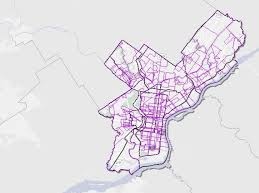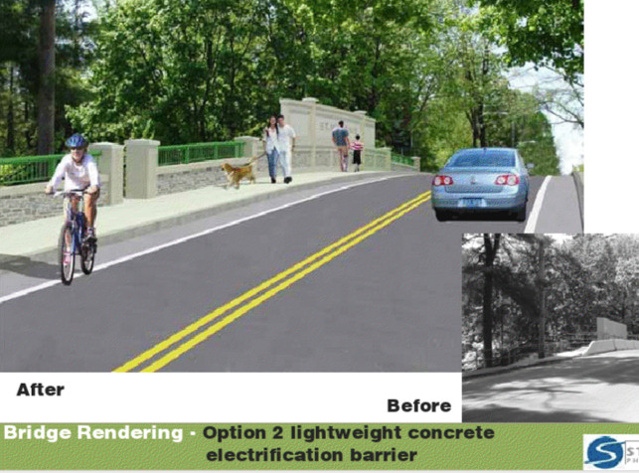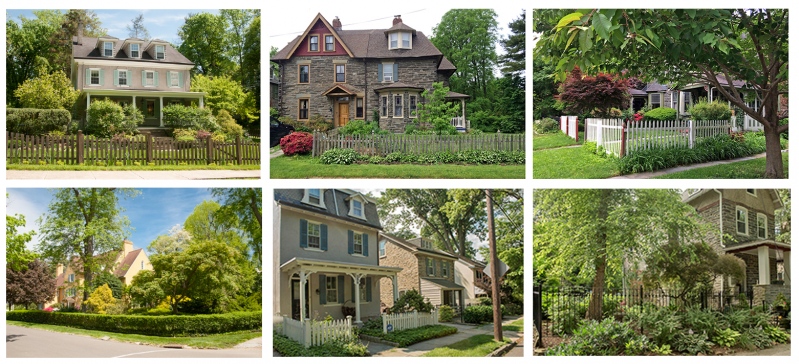A Very Special Place
Recognizing the value of Chestnut Hill as a National Historic District set within the sensitive natural environment known as the Wissahickon Watershed, the Chestnut Hill Community Association’s Physical Division provides active stewardship of land use planning and zoning issues within the community. We have been doing this longer than anyone else! The CHCA was founded back in 1947 by a core group of community members who saw their beloved neighborhood losing its specialness to unconsidered development and neglect. They established a vision and standards that remain in practice today. To maintain these standards, CHCA committees were formed to provide a process for review: Development Review, Land Use Planning and Zoning, and Streetscape. These committees, staffed by volunteers, work with the community and with City agencies, including the Philadelphia City Planning Commission, Philadelphia Streets Department, Philadelphia Water Department, and City Council representatives.
Over a period of many years, we have refined this review process and engage the participation of other Chestnut Hill organizations including the Chestnut Hill Conservancy, the Chestnut Hill Business Association and BID, Parking Foundation, and Friends of the Wissahickon. Together, we comprehensively evaluate both development proposals made by institutional, business, and residential applicants, and zoning matters originating either within our community or the City at large. Our process takes place in a public forum that allows broad community input to facilitate the best possible resolutions for our community.
We are the coordinating Registered Community Organization (RCO) in Chestnut Hill. This means that we bring together representatives from the other Chestnut Hill RCOs and stakeholder organizations as part of our Development Review Process to review projects that are required by the City to seek a variance or review. The process typically spans 37-44 days. Occasionally, revisions are requested that can lengthen the process. Participation in the review process leads to a final decision from the CHCA Board of Directors regarding the recommendation sent to the Philadelphia Zoning Board of Adjustment.
The Physical Division committees are supported by staff that can assist applicants through the review process. Instructions for providing information to us can be found HERE. Our meeting schedule can be found HERE. We require that every applicant fill out our DRC application, which can be found HERE. We look forward to meeting with you and helping you make a positive contribution to Chestnut Hill. 
The Conservancy evaluates variance requests based on the Secretary of the Interior’s Standards for Treatment of Historic Properties, and Philadelphia’s Zoning Board of Adjustment’s (ZBA’s) criteria for zoning variances, as described in this link to the ZBA Application for Appeal.

Fences and Zoning
Planning to Build a Fence?
As part of Philadelphia, Chestnut Hill is regulated by City zoning and building codes that apply to new and replacement fences. These regulations pertain to fence location, height, and opaqueness (degree of visibility through the fence). The contracts provided by many fencing companies make the property owner solely responsible for obtaining any necessary building permits, and the contracts often do not mention the need to check for compliance with zoning provisions. Some Chestnut Hill residents have had fences installed that subsequently triggered zoning violation citations, with steep penalties. An existing fence that has stood for several years and does not comply with current code is not in and of itself illegal, but it cannot be replaced in kind. Such fences are not "grandfathered in." The photos below show examples of fencing that would be permitted in Philadelphia under current zoning code.

Residential Yard Parking
As part of Philadelphia, Chestnut Hill is regulated by City zoning codes that maintain visually open setbacks free of vehicles. These regulations pertain to setbacks in front, side, and rear yards that are free of development and vehicle parking.
Chestnut Hill, by tradition, includes many properties that have no on-site parking, thus maintaining its quality as a walkable and transit-accessible ‘green-country town.’ We are pleased that the Zoning Code supports this tradition.
Some conditions do exist that would not be granted a permit by current zoning code. The photos below show examples of blocks have remained free of residential parking within the front yard setback.
Learn more about what to consider when developing residential parking

SPECIAL INITIATIVE
At the direction of the Chestnut Hill Community Association and the Chestnut Hill Conservancy, the Chestnut Hill Residential Conservation, Preservation, and Development Study was created to address community efforts to conserve open space in the challenged Wissahickon Watershed, improve the water quality of the Wissahickon, and inform community decisions regarding the protection of historically significant architecture and priority areas for new development.
One of the key deliverables of the study was a series of six maps that help to illustrate the lay of the land—a survey of what exists, and what’s at stake.
Review the Maps. Click on each map to enlarge and view at full resolution in a new window. Aerial, Zoning, Environmental Features, Protect Our Watershed, Existing Protected Public and Private Land, and Historically Significant Architecture.
The Study prepared the community for informed public discussions and decision-making, and was especially useful in early 2018, when the Philadelphia Planning Commission began the Northwest Philadelphia District Plan, one of the final elements of the city’s Philadelphia2035 Comprehensive Plan.
Read more about this initiative.
Chestnut Hill Pocket Parks Partnership-An overview of the parks, programs, and green spaces throughout Chestnut Hill.